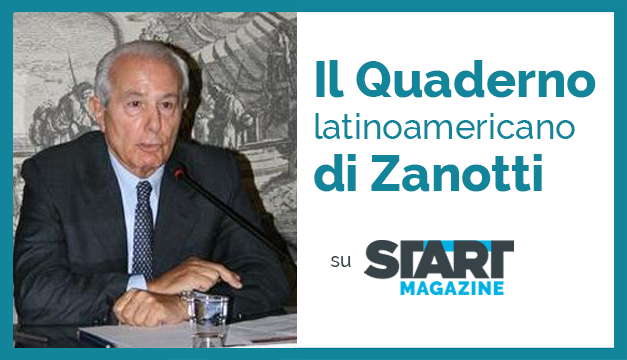I’ll tell you how Chile will change with Boric

Chile elects by a large majority the leftmost and youngest president in its history: Boric. The study by Livio Zanotti, author of ildiavolononmuoremai.it
In the run-off for the presidential election, Chile yesterday reaffirmed its democratic maturity and decisively rejected Pinochet's nostalgia that unexpectedly resurfaced in the first round. Denying almost all the predictions, the new head of state is the leftist candidate Gabriel Boric, 35, the student leader who emerged from the protests of 2019. When first young and very young, then millions of protesters, workers, housewives, public employees, invaded the squares claiming greater rights, economic improvements and finally conquered the creation of the Convention Constitucional, which is formulating the new Cartha Magna to replace the one imposed by the military dictatorship over thirty years ago.
Boric obtained 4 million and 615 thousand votes, equal to 55.9 per cent of the 8 million and 266 thousand expressed; against 3 million 646 thousand, 44.1 per cent, of the far-right candidate, José Kast, who in the first round had exceeded it by 150 thousand. On Kast, son of an immigrant former Nazi officer of the Wermacht and brother of a former minister of Pinochet, whose dictatorship openly claims, the majority of the supporters of the right converged and of that 13 per cent received by the indifferent Franco Parisi, a kind of a phantom candidate who had campaigned from the United States, where he fled for judicial reasons. But they weren't enough to elect him. And it is the first time that the winner of the first round is defeated in the second.
The significant recovery made in the absentee electorate was decisive. In the previous consultation, on 21 November last, only 47 percent of those entitled to participate had participated. In less than a month, the very strong polarization that has opposed the candidates of the two extreme points of the political arc has led to 55.6 percent of the votes in the polls, bringing the total number of voters to well over 8 million of the 15 members. in the lists. And it is this one million new voters that made it possible for Boric to win. In addition to the reunification of the center-left, in which the fears – but also a real dismay – caused by the pinocectism resurrected by Kast, have at least for now made us forget divisions and resentments.
Gabriel Boric, also because of his young years, the agility with which he articulates the radicality of his principles that have grown out of any party bureaucracy (even that of the Communist Party, which is also its first ally), was able to file its program to the extent necessary to secure the convinced and active support of Socialists and Christian Democrats. That is to say of the two pillars of the Concertaciòn , which for years have been the target of his criticisms and of all the alternative left, in turn by those accused of dangerous adventurism. The latter was confirmed again on the eve of the ballot by former President of the Republic Ricardo Lagos, the highest expression of the center-left's technical moderation.
Due to his own ideological background – and some add to his personal temperament – Kast did not show as much speed of maneuver. In moving from his original militancy in the Pinoceptist Independent Democratic Union (UDI) to his new Republican Party, he faded Catholic fundamentalism only to accentuate the more Darwinian neo-liberalism. Neglecting the enormous and undeniable, albeit unbalanced economic and cultural development achieved by Chile in the last 30 years. To the point of seeing in its ailments a prevailing space of pure centralistic and authoritarian restoration (if not worse), not shared even by the majority of the Confindustria world. Unlike Donald Trump, whom he admires, Kast immediately recognized the adversary's triumph. However, he warned that his march towards power has just begun.
And in fact, although the defeat suffered is red-hot and burning (already some collaborators distance themselves from Kast's most exasperated statements), Gabriel Boric's presidency is anything but simple. The outgoing head of state, the conservative Sebastian Piñera, barely escaped impeachment due to a conflict of interest and accused of inefficiency within his government even before the outbreak of Covid, leaves an economy struggling with recession and the pandemic just attenuated by the arrival of the summer season. A heavy legacy that immediately hinders the electoral promises of the new President to a country eager for rapid and profound changes. In which the control of the Congress and therefore of the legislative activity will be conditioned by the opposition.
Boric is well aware of this. Therefore he invites the defeated opponent to dialogue and to the crowd of tens of thousands of people who invaded the entire center of Santiago to celebrate him with songs, dances and fireworks, he announces that he will not rule locked up in the Moneda but from the street, in permanent communication with the people. The tribute to the martyr president Salvador Allende is an opportunity to call everyone to civil coexistence, to mutual respect. The youngest and most voted President in Chilean history is also expected to face the most difficult test: to repair the inequities that have grown together with the country without compromising its energies. The idea of involving them all in a permanent mobilization transpires, starting with the Constituent Assembly already established and in which not the party delegates but the independent personalities are predominant, up to the workplace, the universities, the street.
This is a machine translation from Italian language of a post published on Start Magazine at the URL https://www.startmag.it/mondo/cile-boric-elezioni/ on Mon, 20 Dec 2021 06:05:15 +0000.
